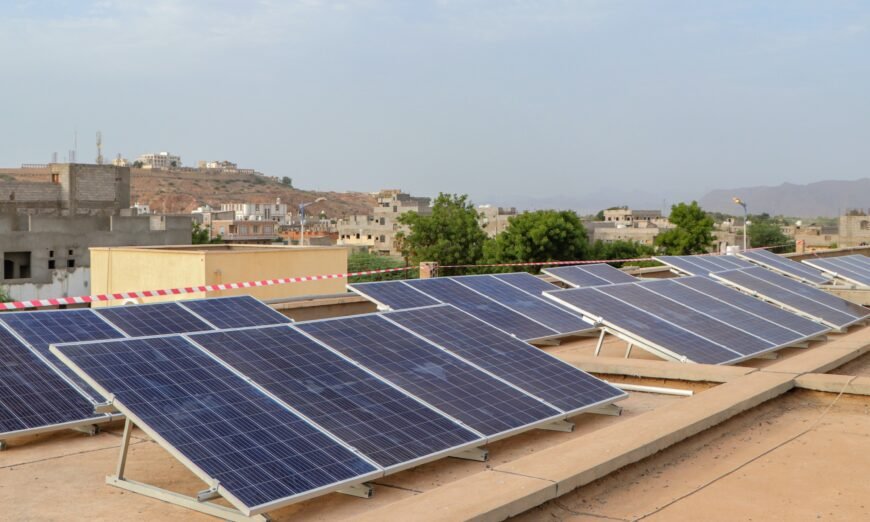 Infrastructure and Construction
Infrastructure and Construction
Kuwait has been investing significantly in infrastructure development to modernize its urban landscape and diversify its economy. The government’s Vision 2035 (New Kuwait) aims to transform Kuwait into a financial and cultural hub by focusing on infrastructure projects. The country’s infrastructure sector has been bolstered by large-scale initiatives, such as the Sheikh Jaber Al-Ahmad Al-Sabah Causeway, one of the longest bridges in the world, and the Kuwait International Airport expansion.
- Real Estate Development: With rising demand for housing and commercial spaces, the real estate sector in Kuwait is attracting investment for residential complexes, retail hubs, and business parks.
- Transportation Projects: The government plans to expand and modernize Kuwait’s road network, metro system, and airports, providing investment opportunities in civil construction, project management, and engineering services.
- Public-Private Partnerships (PPP): Kuwait encourages PPPs to deliver large infrastructure projects, offering opportunities for foreign investors, particularly in areas like housing, urban transport, and healthcare infrastructure.
- Smart Cities: The push for smart city initiatives, like the South Al Mutlaa City, involves integrating technology into urban development, creating investment potential in digital infrastructure, telecommunications, and IT services.
Indian construction companies, like Larsen & Toubro, have been active in Kuwait, participating in major infrastructure projects, including metro rail systems and airport expansions. Further collaborations between India and Kuwait are likely in smart city technologies, given India’s experience with its own Smart Cities Mission.
Renewable Energy
Kuwait, traditionally reliant on oil and gas, is increasingly focusing on renewable energy as part of its sustainability strategy. The country aims to generate 15% of its energy from renewable sources by 2030, primarily through solar and wind projects.
- Solar Power: Kuwait’s abundant sunlight makes it a prime location for solar energy investments. Projects like the Shagaya Renewable Energy Park aim to produce significant solar energy, offering investment opportunities in solar panel manufacturing, installation, and maintenance.
- Wind Energy: Wind power projects, although in a nascent stage, present a growing area of investment, with the potential for wind farms in desert areas.
- Green Hydrogen: As part of its transition to a low-carbon economy, Kuwait is exploring hydrogen production using renewable energy, presenting opportunities for investment in hydrogen technology and infrastructure.
India, a leader in solar energy through initiatives like the International Solar Alliance, is well-positioned to collaborate with Kuwait on renewable energy projects. Indian companies can provide expertise in solar technologies, manufacturing, and large-scale renewable project management, further enhancing bilateral cooperation in this sector.
 Oil and Gas
Oil and Gas
Kuwait is one of the world’s leading oil producers, with proven reserves of around 101.5 billion barrels. The oil and gas sector remains a cornerstone of its economy, accounting for more than 90% of export revenues. While oil continues to dominate, there is a shift toward enhancing downstream industries and improving efficiency through technology and innovation.
- Enhanced Oil Recovery (EOR): As Kuwait’s oil fields mature, there is a growing need for EOR techniques to increase production. This presents opportunities for technology providers specializing in EOR solutions.
- Natural Gas Development: Kuwait is focusing on increasing its natural gas output to meet rising domestic demand, particularly for power generation. Investment opportunities exist in gas exploration, processing, and transportation infrastructure.
- Petrochemicals: Kuwait is expanding its petrochemical industry, driven by investments in facilities such as the Al-Zour Refinery. Investors can explore opportunities in chemical production, refining technologies, and petrochemical logistics.
- Oilfield Services: Given the scale of oil production, opportunities exist in providing oilfield services, including drilling, maintenance, and infrastructure support.
India is a major importer of Kuwaiti crude oil, and there is a strong bilateral relationship in the energy sector. Indian companies like ONGC Videsh and Indian Oil Corporation have expressed interest in collaborating on oil exploration, refining, and petrochemical projects in Kuwait. There is also potential for India to offer its expertise in managing oilfield services and providing skilled manpower.
 Healthcare
Healthcare
Kuwait’s healthcare sector is undergoing rapid modernization, driven by population growth, increasing life expectancy, and rising demand for specialized care. The government’s investment in healthcare infrastructure, including new hospitals and clinics, is aimed at providing world-class healthcare services to its citizens.
- Hospital Development: The construction of new hospitals and healthcare facilities, such as the Sheikh Jaber Al-Ahmad Hospital, offers opportunities for investment in healthcare infrastructure and hospital management.
- Medical Tourism: Kuwait is seeking to reduce its reliance on overseas medical treatment by developing a strong local healthcare sector. There are investment opportunities in specialized healthcare services, such as oncology, cardiology, and fertility treatments, which can attract patients from the region.
- Healthcare Technology: As Kuwait embraces digital health, telemedicine, and medical technology innovations, investors can explore opportunities in health IT systems, medical devices, and pharmaceutical manufacturing.
India, with its strong pharmaceutical and healthcare industries, is well-placed to collaborate with Kuwait in healthcare. Indian companies have already partnered with Kuwaiti hospitals for providing telemedicine services and medical equipment. Additionally, Kuwait imports a significant amount of pharmaceuticals from India, and this trade is likely to expand further.
 Logistics Services
Logistics Services
Kuwait’s strategic location at the crossroads of Europe, Asia, and Africa makes it a vital logistics hub in the region. The country is focusing on developing world-class logistics infrastructure to support trade and economic diversification.
- Free Zones and Ports: Investments in free trade zones, such as the Mubarak Al Kabeer Port on Bubiyan Island and the Kuwait Free Trade Zone, offer opportunities for logistics companies, shipping firms, and investors in warehousing and transportation.
- E-commerce Logistics: With the rise of e-commerce in the region, there is growing demand for efficient logistics services. This provides investment opportunities in last-mile delivery, warehousing, and cold chain logistics.
- Air Cargo: The expansion of Kuwait International Airport and the development of air cargo facilities create opportunities for investment in air logistics, freight forwarding, and supply chain management.
India and Kuwait have strong trade ties, and there is significant potential for cooperation in logistics services. Indian logistics companies can partner with Kuwaiti firms to develop supply chain solutions, particularly in sectors like pharmaceuticals, agriculture, and textiles. With the growth of e-commerce in both countries, logistics companies have vast opportunities to enhance trade facilitation.
 Banking and Finance
Banking and Finance
Kuwait’s banking sector is one of the most developed in the Middle East, characterized by a strong regulatory framework and a high degree of liquidity. The country’s financial sector plays a critical role in supporting its economy and providing financing for infrastructure projects.
- Islamic Finance: Kuwait is a global leader in Islamic finance, with a significant share of its banking sector adhering to Sharia-compliant financial principles. Investors can explore opportunities in Islamic banking, Sukuk (Islamic bonds), and Takaful (Islamic insurance).
- Fintech: Kuwait is embracing financial technology, with the rise of digital banking, payment solutions, and blockchain applications. The government is supportive of fintech innovations, providing opportunities for startups and investors in digital financial services.
- Investment Funds: As Kuwait seeks to attract foreign capital, investment in private equity, venture capital, and sovereign wealth funds like the Kuwait Investment Authority (KIA) offers promising avenues.
India and Kuwait have substantial room for collaboration in the financial sector. Kuwait Investment Authority has invested in Indian infrastructure projects, real estate, and financial markets. There is also scope for Indian fintech startups to partner with Kuwaiti banks, particularly in digital banking and mobile payment solutions.
 Manufacturing
Manufacturing
Kuwait is focusing on diversifying its economy by developing its manufacturing sector. The country aims to reduce its reliance on imports by fostering local production and industrial development, particularly in non-oil sectors.
- Petrochemical Manufacturing: Given its vast oil and gas reserves, Kuwait is looking to expand its downstream industries, particularly petrochemicals, plastics, and fertilizers. Investors can explore opportunities in establishing manufacturing units to cater to both domestic and international markets.
- Food and Beverage: There is growing demand for locally manufactured food and beverage products, driven by population growth and changing consumer preferences. Investments in food processing, packaging, and distribution offer significant potential.
- Construction Materials: With a booming construction sector, there is a high demand for locally manufactured building materials, such as cement, steel, and glass. Investors can capitalize on this demand by setting up manufacturing units for construction-related products.
- Pharmaceutical Manufacturing: Kuwait is seeking to develop its pharmaceutical manufacturing capacity to reduce its reliance on imports. This provides opportunities for foreign investors, particularly in the production of generic drugs and medical devices.
India’s manufacturing sector, particularly in areas like pharmaceuticals, chemicals, and food processing, offers vast opportunities for collaboration with Kuwait. Indian companies can provide expertise, technology transfer, and joint ventures in manufacturing, while Kuwait’s strategic location offers a gateway for Indian products to enter Middle Eastern and European markets.

